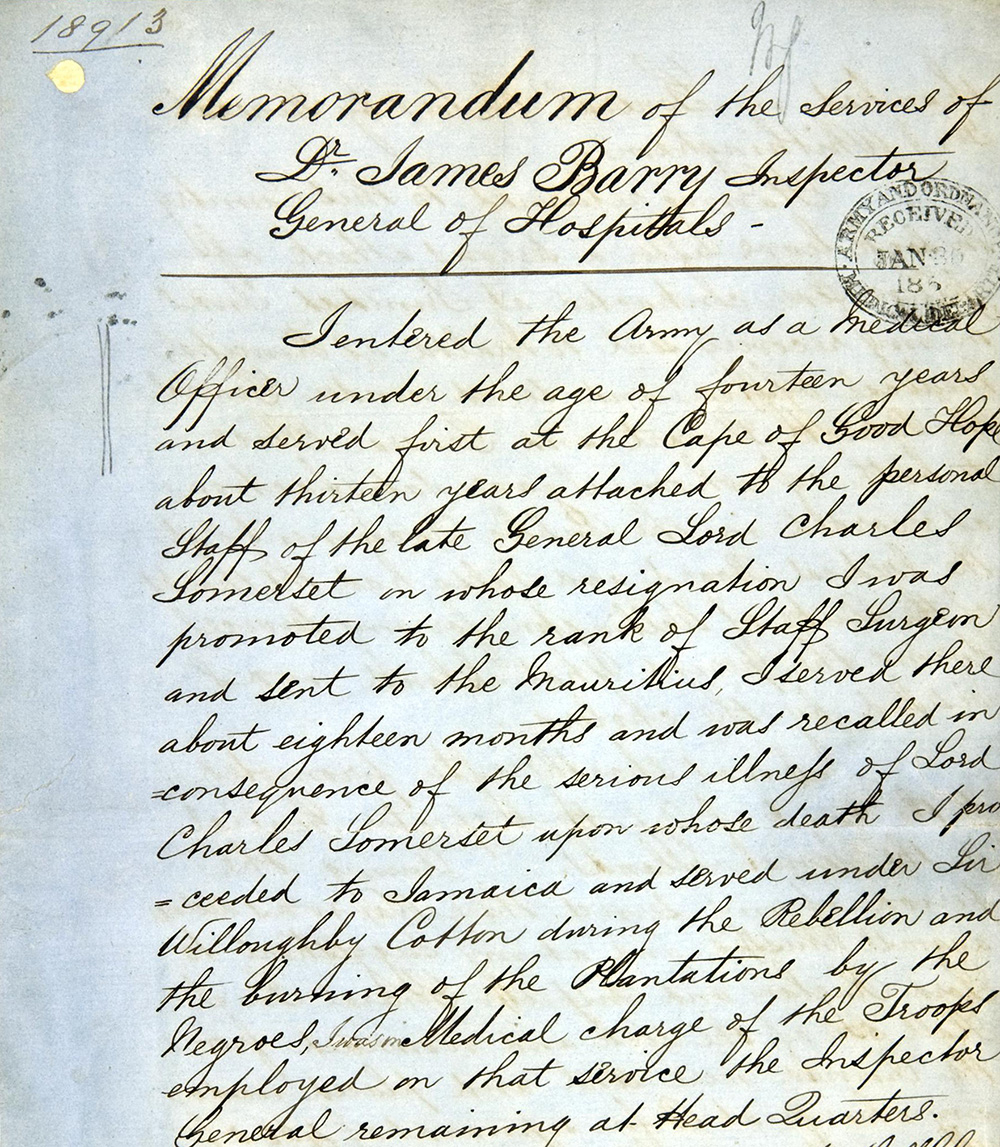
Extract from a document entitled ‘Memorandum of the Services of Dr James Barry Inspector General of Hospitals’. This was written by Dr Barry at the end of his career after serving in Canada when he returned to London in 1859, although the date stamp on the document is not clear. Catalogue ref: WO 138/1.
In this extract Dr James Barry refers to an important rebellion of the enslaved on the island of Jamaica 1831-32.
Transcript
Memorandum of the Services of Dr James Barry Inspector General of Hospitals.
I entered the Army as a medical officer under the age of fourteen years and served first at the Cape of Good Hope about thirteen years attached to the personal Staff of the late General Lord Charles Somerset on whose resignation, I was promoted to the rank of Staff Surgeon and sent to the Mauritius [an island in the Indian Ocean]. I served there about eighteen months and was recalled in consequence of the serious illness of Lord Charles Somerset upon whose death I proceeded to Jamaica and served under Sir Willoughby Cotton during the Rebellion and the burning of the Plantations by the Negroes. I was in medical charge of the Troops employed on that service the Inspector General remaining at Head Quarters….
- What does this statement indicate about James Barry’s age when he started his degree in medicine at Edinburgh University in Source 1?
- What does this extract infer about his qualities and skills as a doctor?
- Find out about the uprising by the enslaved in Jamaica in 1831/2 mentioned by Dr James Barry and the role of its leader Samuel Sharpe and Sir Willoughby Cotton.
- What are the advantages/disadvantages of using personal testimony as historical evidence?
